
Can You Camp Anywhere in Québec?
Share your WOW moments in the ORIANCE survey and get a chance to win a $100 prepaid card + a regional gift basket worth $100
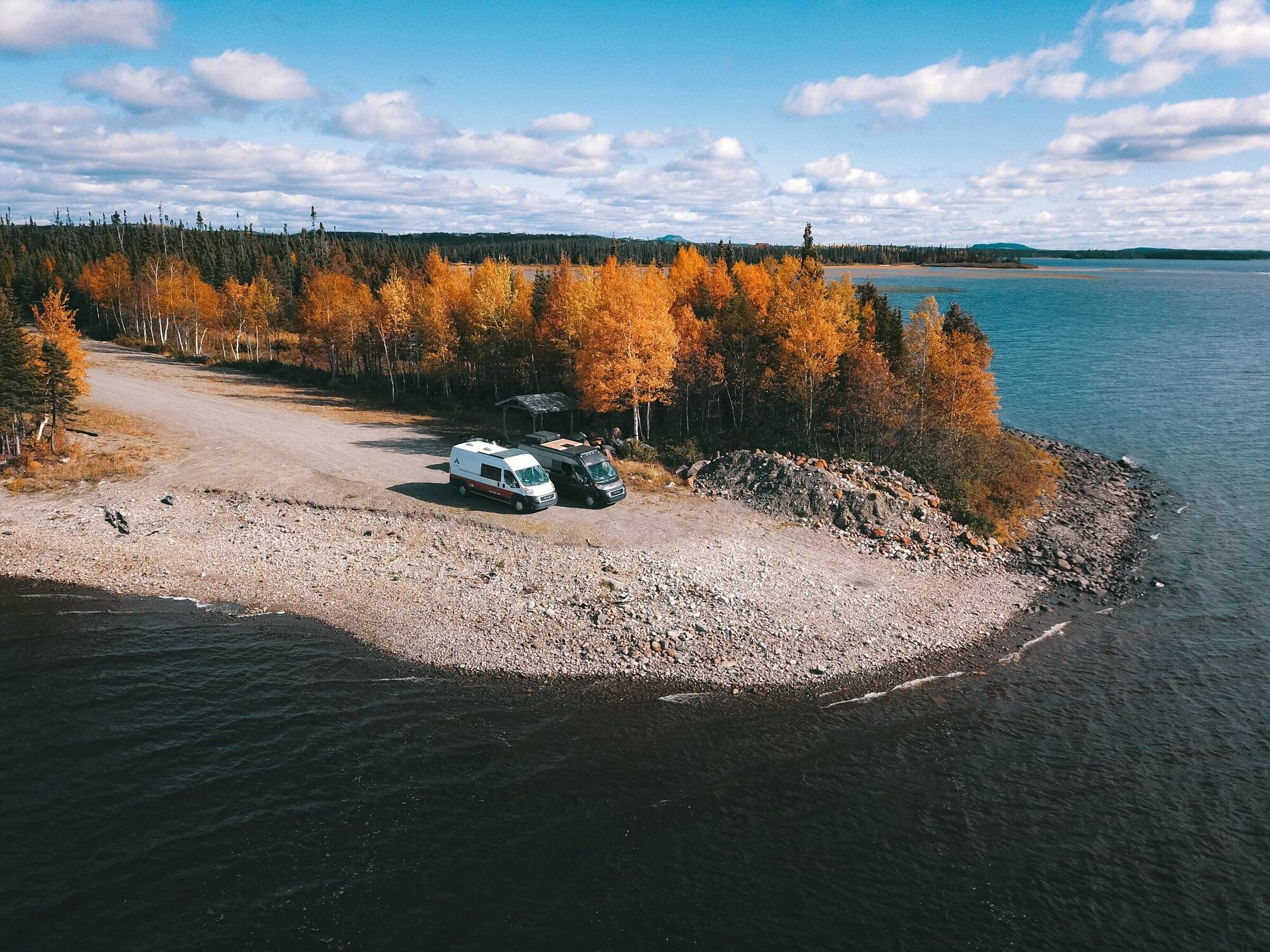
Québec is vast, covered in forests, rivers, and lakes. In Eeyou Istchee Baie-James, this immensity is even more striking. So, one might think it's possible to simply pitch a tent or park a van anywhere to enjoy a night in the great outdoors. But is that really the case?
The short answer: no. But, as is often true, the reality has many nuances. Wild camping is possible in several places, but there are always rules to follow. Getting informed before setting up camp is not only a matter of respect, but also a way to avoid legal trouble.
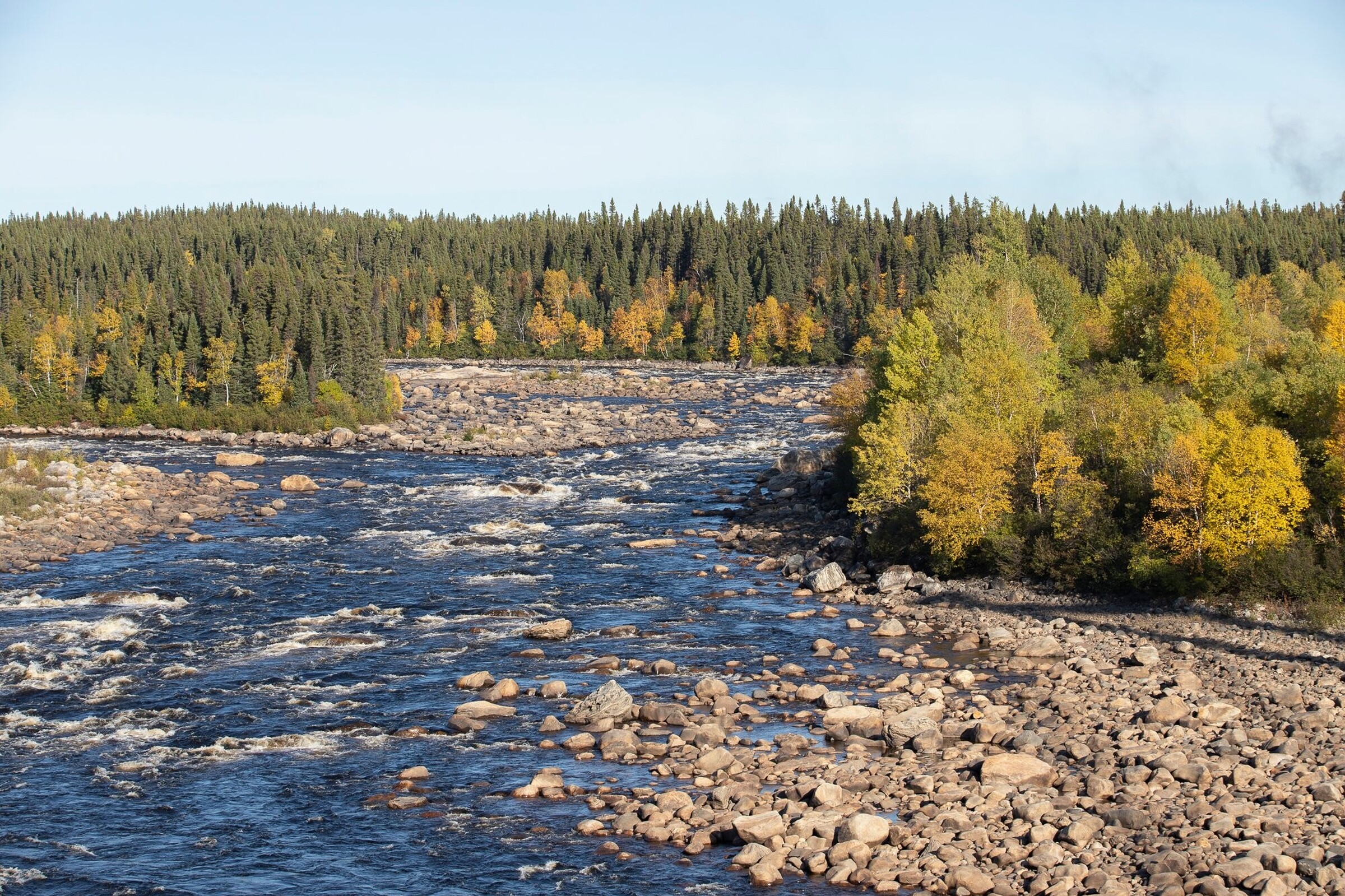
Public Lands: An Endless Playground
In Québec, about 92% of the territory consists of public lands, also known as Crown lands. That's huge! These spaces are filled with forests, lakes, and rivers that draw outdoor and camping enthusiasts.
These lands can be structured or unstructured:
Structured: national parks, wildlife reserves, outfitters with exclusive rights, and ZECs. These territories are managed and regulated by specific organizations. In Eeyou Istchee Baie-James, examples include the Albanel-Mistassini-and-Waconichi Lakes Wildlife Reserve (Nibiischii) as well as outfitters.
Unstructured: these fall directly under the government or an RCM. Access is less restricted, but there are still rules related to environmental protection, safety, and shared use of the land.
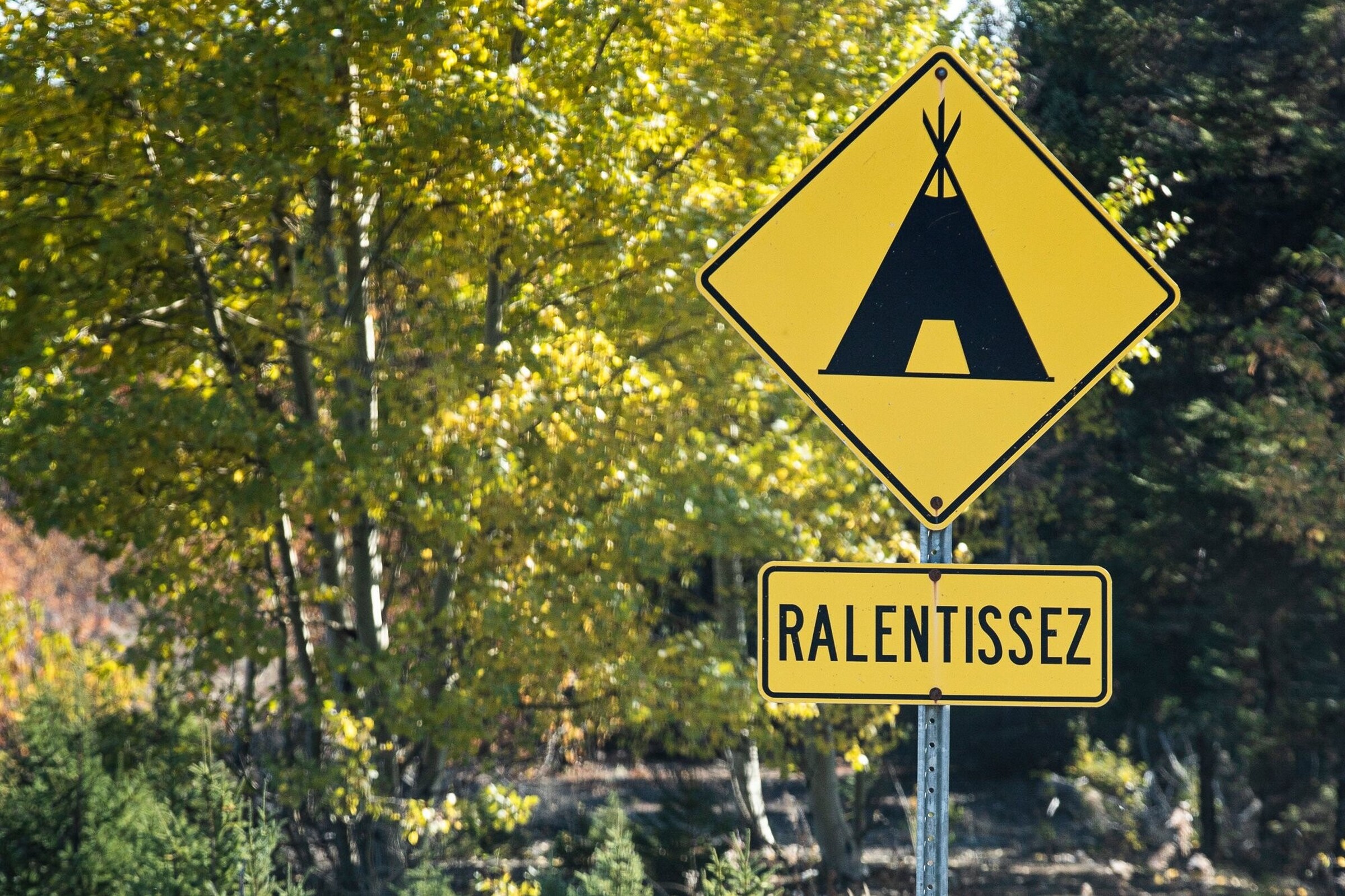
A Special Case: Eeyou Istchee Baie-James
Since the signing of the James Bay and Northern Quebec Agreement (1975), the territory of Eeyou Istchee has been divided into three categories of land, each with its own rules (JBNQA - chapters related to land regime):
Category I: lands belonging exclusively to Cree communities and reserved for their use.
Category II: public lands where the Cree hold exclusive rights for hunting, fishing, and trapping.
Category III: lands accessible to everyone for hunting and fishing, but certain species remain reserved for the Cree.
When a non-Indigenous person wishes to camp, hunt, or fish on Category I or II lands, they must obtain authorization from the Band Council of the relevant community. More generally, even on so-called “free” public lands, camps must always remain temporary and mobile. Permanent settlements are not permitted.
Why Choose a Designated Campground?
Even though wild camping has its charm, staying at a designated campground has several advantages:
Legality: no hassle, everything is already compliant.
Environmental respect: sites are designed to limit human impact, with fire pits, defined camping areas, and proper waste and sewage management.
Comfort and safety: having access to a shower and toilet after a long day outdoors or in the middle of the night is priceless.
Local economy: choosing a campground supports nearby communities and encourages local tourism development.
And today, the options are so varied that there's a campground for every camper's style, whether you're looking for lively, family-friendly, secluded, or lakeside.
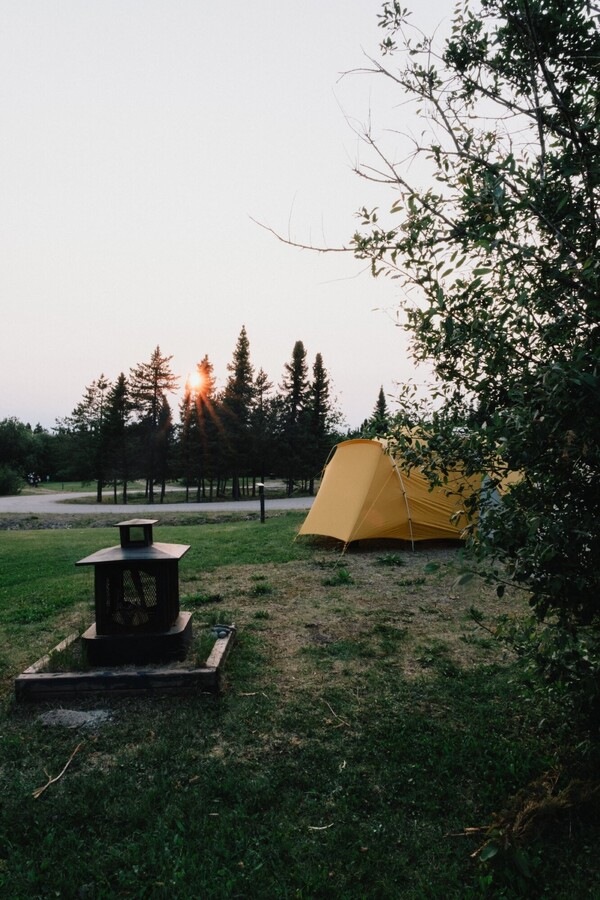
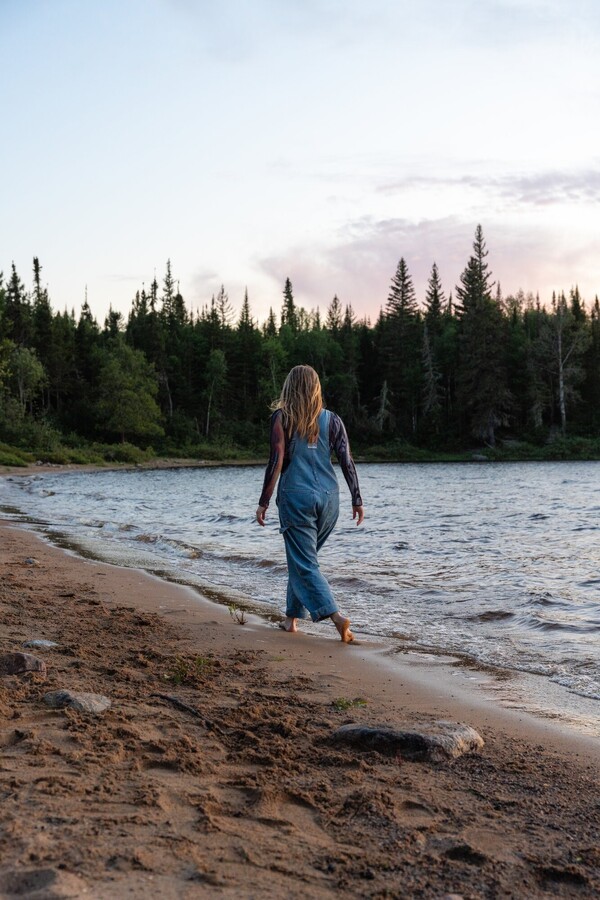
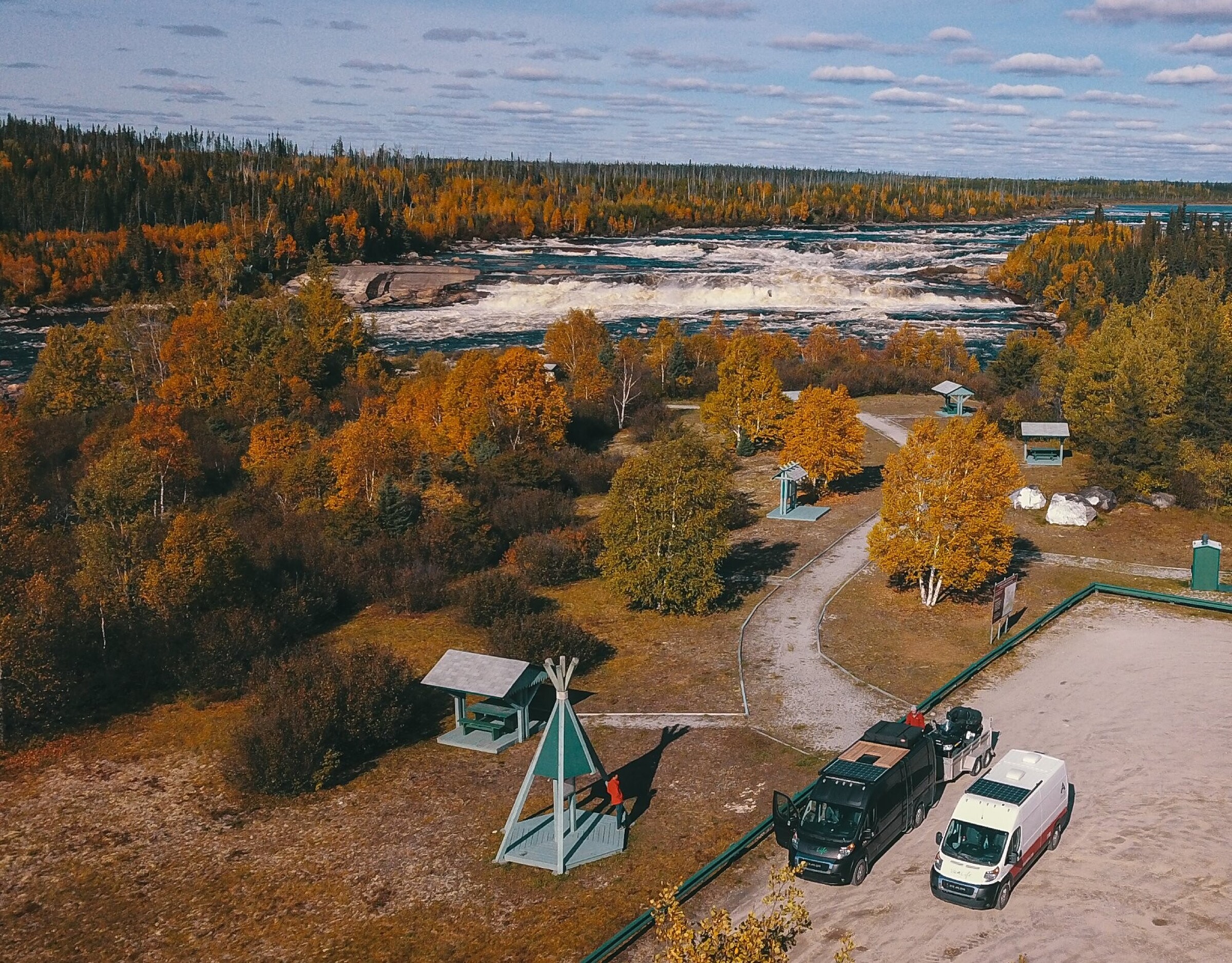
Practicing Responsible Wild Camping
For those who still prefer camping in the wild, the key word is responsibility. A few basic rules apply:
Check in advance where camping is permitted
Keep a low profile and avoid unnecessary noise
Pack out all waste and dispose of it properly
Don't dump wastewater just anywhere
Avoid trampling fragile vegetation
Never feed the animals (it changes their behavior and can be dangerous)
Follow fire safety guidelines
Nature is beautiful and peaceful. To keep it that way, every action matters. Camping also means caring for the land that welcomes us.
News
A Few Gift Ideas That Are Anything But Boring...
Thursday, November 27, 2025
Eeyou Istchee Baie-James Among the World's Best Destinations According to National Geographic
Wednesday, November 5, 2025
Meeting Eeyou Istchee Baie-James
Tuesday, September 9, 2025
Road trip in Eeyou Istchee Baie-James : 6-Day Itinerary
Tuesday, September 2, 2025
7 Essential Items for a Road Trip in Eeyou Istchee Baie-James
Thursday, August 21, 2025
The Legendary Billy-Diamond Highway in Four Highlights
Tuesday, August 19, 2025